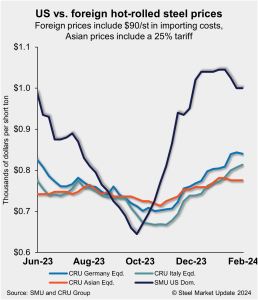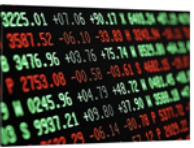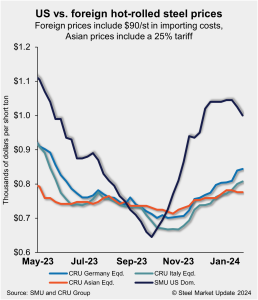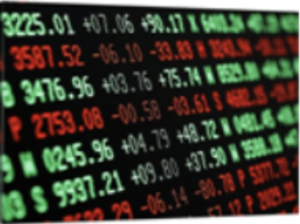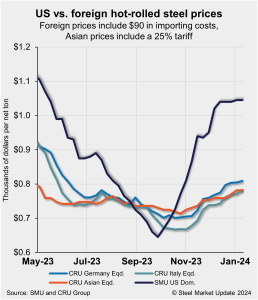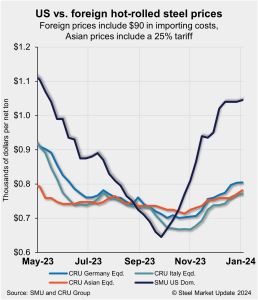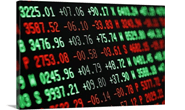
HRC futures: A flock of canaries in the mine
Much has happened since we last met on Jan. 4. Cleveland-Cliffs announced a price increase on Jan. 3, lifting the futures market in the morning only for it to finish the day $20-$30 per short ton (st) below those morning highs. On Jan. 4, the futures curve was down another $10-$28/st. And in my column for SMU that evening, I asked a question: Would those aggressive sellers be met with a short-squeeze forcing them to cover, or had the market peaked with the negative price action to start the year the proverbial canary in the coal mine?


